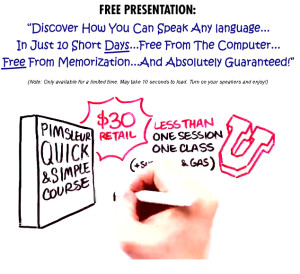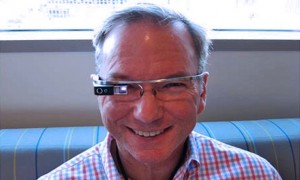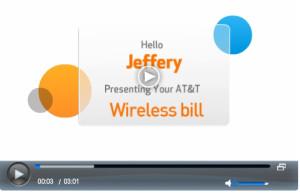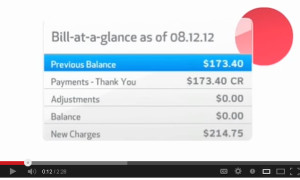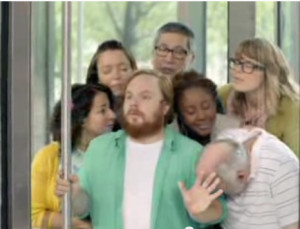YOUR BROWN EYES ARE MINE

So, apparently, the venerable Borghese family, a family of 1000-year-old Italian aristocratic lineage, is being sued by Borghese, Inc., a company founded by one of them, Princess Marcella Borghese, in the 1950s to sell some foofoo water under the brand name, Princess Marcella Borghese. This brand and company was sold to Revlon in the 70s, who turned around and sold it to M&A conquistadora Georgette Mosbacher in the early 90s. Now Mosbacher is suing the family for having the temerity to use its family name to make a further living. Mosbacher is claiming she owns all uses of the family name, Borghese.
Ho hum, I know. When the 1% have a cat fight, it’s so much fun.
Aside from the obvious lack of merits in the case (at least to me; I’m no lawyer, of course, but does one member of a family have the rights to sell the family name in the first place?) this feels like just one more example of companies behaving like bullies, at the expense of their own brands. Borghese, Inc. is not giving love. Violation of Rule #6. Also Rule #2: Perception is Reality.
Imagine if McDonald’s or Disney or Ford were to sue anybody with those family names (and there are probably millions) to stop them from using them. Those companies are anything if not hyper-vigilant trademark enforcers, but they stop at the unreasonable and ridiculous. They’re also savvy to the value of brand loyalty and imagery. They know it’s not smart to be a jerk. Not Georgette Mosbacher though. That’s now her personal brand. (Incidentally, I just registered the name Mosbacher with the U.S. Patent and Trademark Office, so she’d better lawyer up.)
As the NYT article linked above referenced, there’s also been the case of bad-PR-magnet Chick-fil-A suing some little silk-screener in Vermont for daring to use the phrase “Eat More Kale” on his homemade T-shirts, which CfA apparently thought was way too close to its unique “Eat Mor Chikin.” Yes, CfA, that imperative sentence (with its adorable misspelling) has never, ever been used in the English language in any variation before your copywriters thought of it and your copyrighters trademarked it. Just before the gay-bashing misunderstanding of last summer, the fast-food chain had already covered itself with bullying glory with this let’s-pick-on-the-little-guy lawsuit. Chick-fil-A (or is it Chik-fil-A?) seems to go out of its way to give us reasons to boycott them.
The Patent Parasites
And then there are the patent parasites; genetic and software companies who lay claim to the rights to things discovered in the natural world (like your genes) or ideas so obvious they aren’t even ideas (like backing up your files online, a claim by Intellectual Ventures of Silicon Valley).
There was a victory for common sense in this regard, however, when the Supreme Court unanimously ruled that Myriad Genetics could not enforce patents it claimed it owned on the discovery of certain genes responsible for breast or ovarian cancer in women. This was such a forehead-slappable ruling (they even had Clarence Thomas write the opinion) on a blatantly evil ploy by a company to try and make an extortionary buck off of the suffering of millions of women, that it amazed me the plaintiffs had the gall to take it all the way to the Supreme Court. But greed has no shame.
It did, however, dash my own nefarious plans to become the richest man in the world. I have noticed, over decades of meticulous and exhaustive study, that a majority of human beings have brown eyes. This is my life’s work. I don’t think anybody else noticed this before. So I’ve filed a patent to claim brown eyes as my intellectual property. If approved (and before the High Court’s clearly anti-free-enterprise ruling, I had every expectation it would have been), I would have been able to charge licensing royalties to anyone on earth possessing brown eyes…brown eyes I discovered. I wasn’t going to be greedy, though: I figured a low, annual licensing fee of $10 per eye very affordable and reasonable, possibly a buy-one-get-one promotion or with a family plan for big savings. But multiply that by the estimated billions of brown eyes on the planet…well, let’s just say I would have been able to afford the legal army to enforce my patent forever (with surgical spoons if necessary). But now the activist, anti-innovation, anti-capitalist Supreme Court has rendered my life’s work and investment worthless. Thanks again, Clarence Thomas.
You can win the battle and lose the war.
Companies that indulge in bullying (aside from law firms and equity ventures), making IP lawsuits against individuals who pose no threat to them, seem to be stuck in the narcissistic notion that their right to own something because they saw it or thought of it trumps what the public thinks of them–that same public they want to win over and keep as loyal customers. It is just plain stupid. At least from a branding point of view.
The article in the NYT quotes an IP legal specialist, Kenneth Port, a law professor at the William Mitchell College of Law in Minneapolis, “We’re seeing a growth because trademark owners are finding that the more kind of bullying conduct they do, the more the trademark is worth. They think they have to act like a bully to get the trademark stronger.”
I would respectfully submit that this is thinking like a lawyer, not a marketer. Since your brand really only thrives in the minds of its perceivers, to poison those minds with bad karma poisons your brand. Your brand means “bully.” Sometimes the best defense is no defense.
This may be showing my 20th century psych-major prejudice, but it seems that the people who make these patent/trademark suits (from Georgette Musbacher® to the ironically named Intellectual Ventures) have, somehow, become stuck in what Freud described as the oral phase of early childhood development. Everything they see they want to stick in their mouths, to ingest the whole world into their bodies… like The Blob.
But The Blob didn’t exactly have a great brand, and it ended up being frozen and dropped in the Arctic. Something that will happen to Chick-fil-A, Intellectual Ventures, Georgette Musbacher®, and any company that acts like a bully…if they aren’t nicer.
But this isn’t to say you should never defend your trademark or your patent. In fact, I would recommend that you do so zealously. But with common sense. Pick your battles. If someone seems to actually be trying to steal the equity in your brand to enrich themselves, or sell fake Oakley sunglasses, by all means go after them with your SEAL Team of IP lawyers. Just think about the context, though, and what the cost to your own image (not to mention the cost of the lawyers) that would do. Don’t pick on the little guy (sometimes just a friendly personal phone call can do more wonders than a lawsuit). And don’t be a jerk.
Still, you do have such pretty brown eyes. Twelve billion of them.

